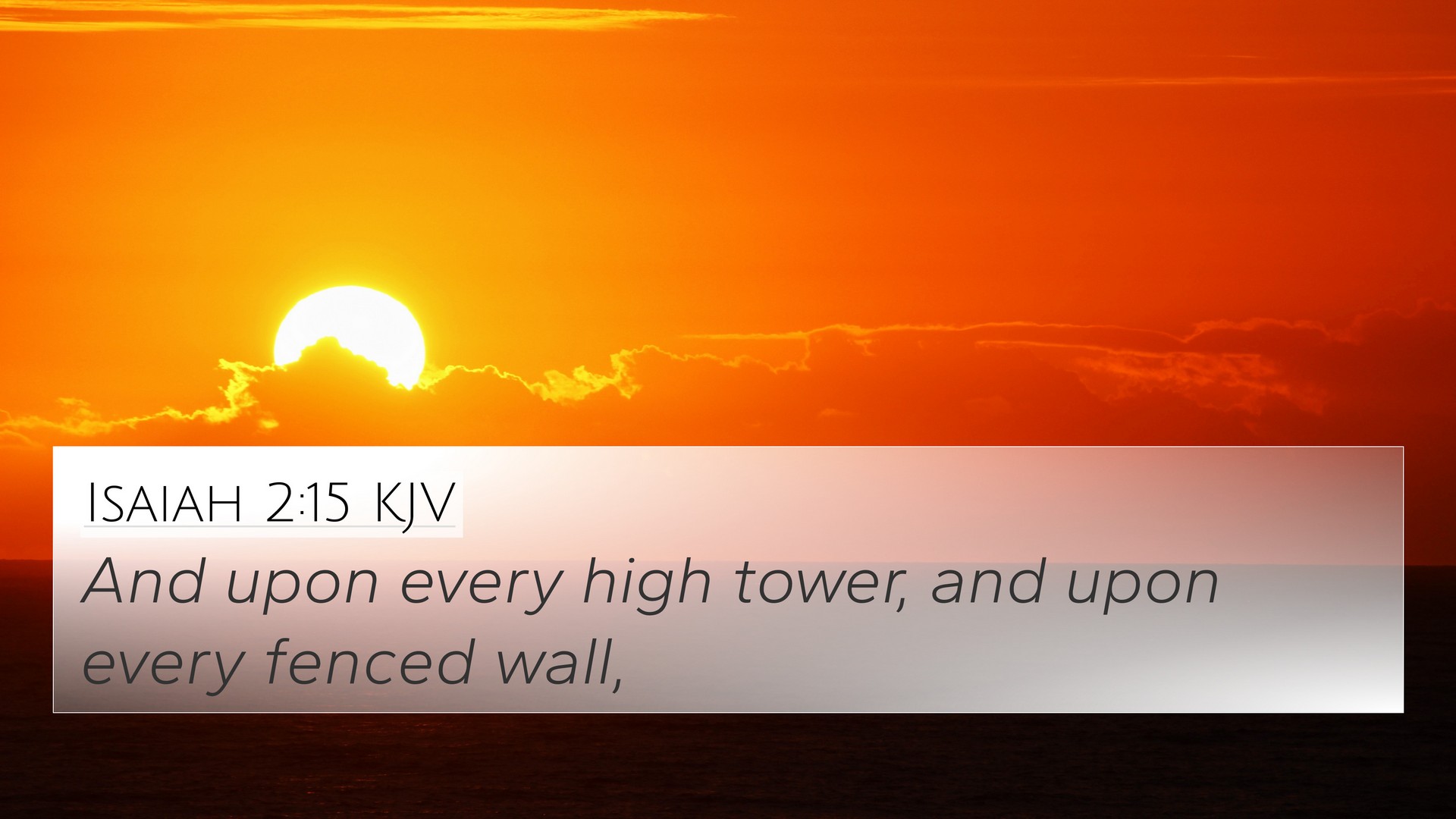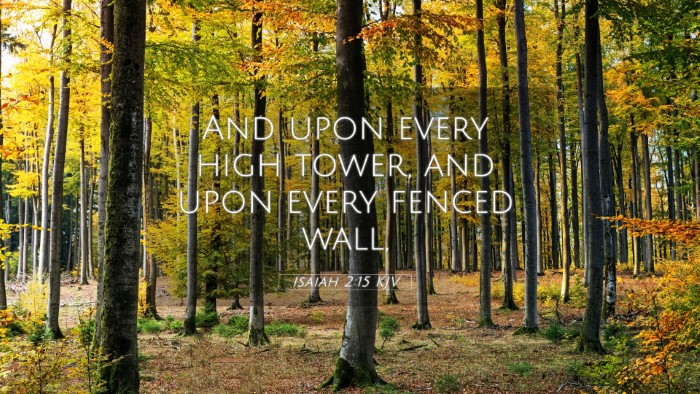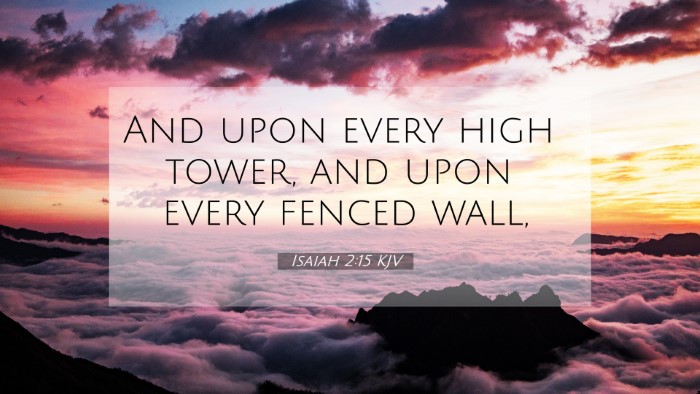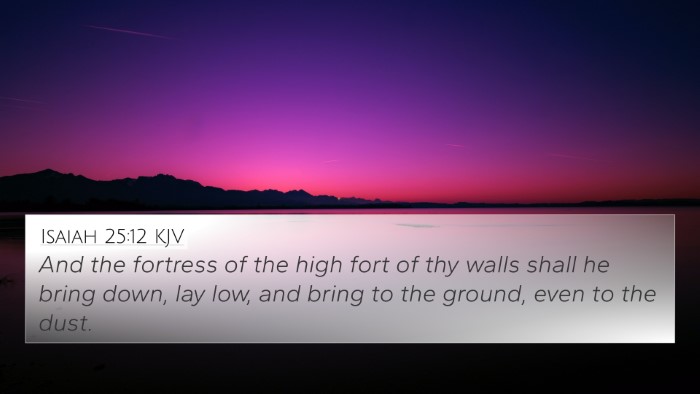Understanding Isaiah 2:15
Isaiah 2:15 states, "And upon every high tower, and upon every fenced wall." This verse can be interpreted through various public domain commentaries to grasp its full meaning and implications. Below are insights based on notable commentaries, including those by Matthew Henry, Albert Barnes, and Adam Clarke.
Contextual Overview
The context of Isaiah 2 presents a prophetic vision of the future where nations will turn to the Lord. This specific verse highlights a warning against pride and the reliance on human fortifications. The 'high tower' and 'fenced wall' are metaphors for the pride of the people and their false sense of security in their own strength.
Insights from Commentaries
-
Matthew Henry's Commentary
Henry emphasizes the futility of human security apart from God. He suggests that such towers and walls symbolize human arrogance and reliance on material strength, which demonstrate a lack of faith in God's protection.
-
Albert Barnes' Notes
Barnes explains that these structures represent the defenses that nations build to protect themselves, which will ultimately be of no use against divine judgment. He points to the notion that true security lies in humility and dependence on God.
-
Adam Clarke's Commentary
Clarke interprets the 'high tower' and 'fenced wall' as symbols of human pride and sinful reliance, an indication of how people often trust in their own abilities instead of in God’s providence and power. He warns that these will be leveled in the face of divine intervention.
Thematic Connections to Other Bible Verses
Isaiah 2:15 is intricately linked with several other scriptures, reinforcing its messages about pride, security, and reliance on God. Below are some important cross-references:
- Proverbs 16:18: "Pride goes before destruction, and a haughty spirit before a fall."
- Psalms 20:7: "Some trust in chariots and some in horses, but we trust in the name of the Lord our God."
- Jeremiah 17:5: "Cursed is the one who trusts in man, who depends on flesh for his strength and whose heart turns away from the Lord."
- Isaiah 31:1: "Woe to those who go down to Egypt for help, who rely on horses, who trust in the multitude of their chariots because they are so strong..."
- 2 Corinthians 10:3-4: "For though we walk in the flesh, we do not war after the flesh: (For the weapons of our warfare are not carnal, but mighty through God..."
- Philippians 3:3: "For we are the circumcision, which worship God in the Spirit, and rejoice in Christ Jesus, and have no confidence in the flesh."
- Isaiah 26:4: "Trust in the Lord forever, for the Lord God is an everlasting rock."
Conclusion
Isaiah 2:15 serves as a profound reminder of the vanity of human efforts apart from divine guidance and strength. Through careful study and cross-referencing with other scriptures, believers can deepen their understanding of reliance on God rather than on worldly measures of security. This verse prompts reflection on the connections between scriptural teachings that emphasize humility, dependence, and faith.



